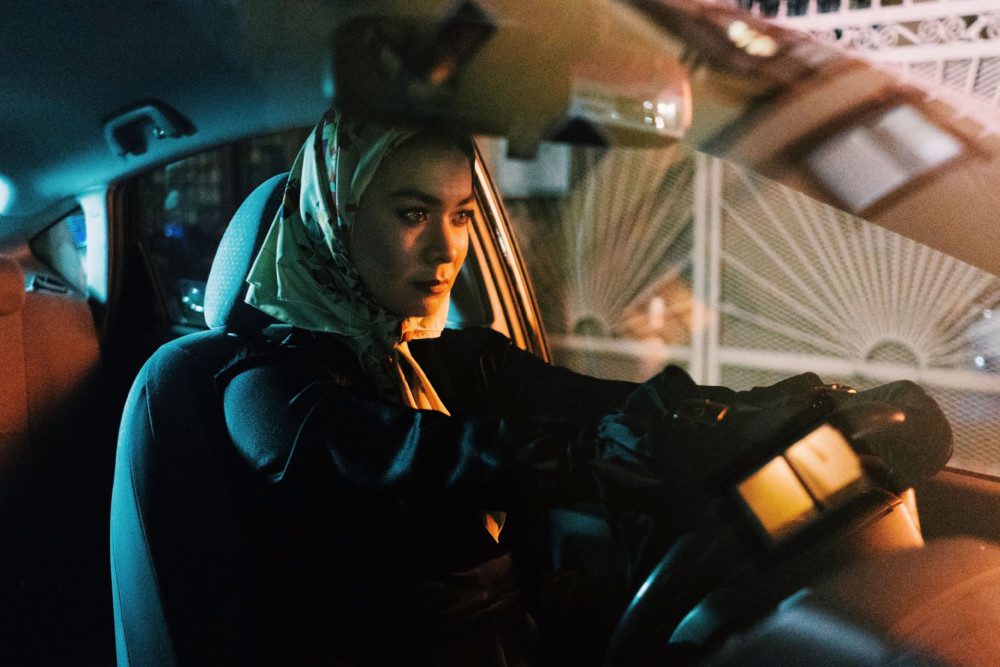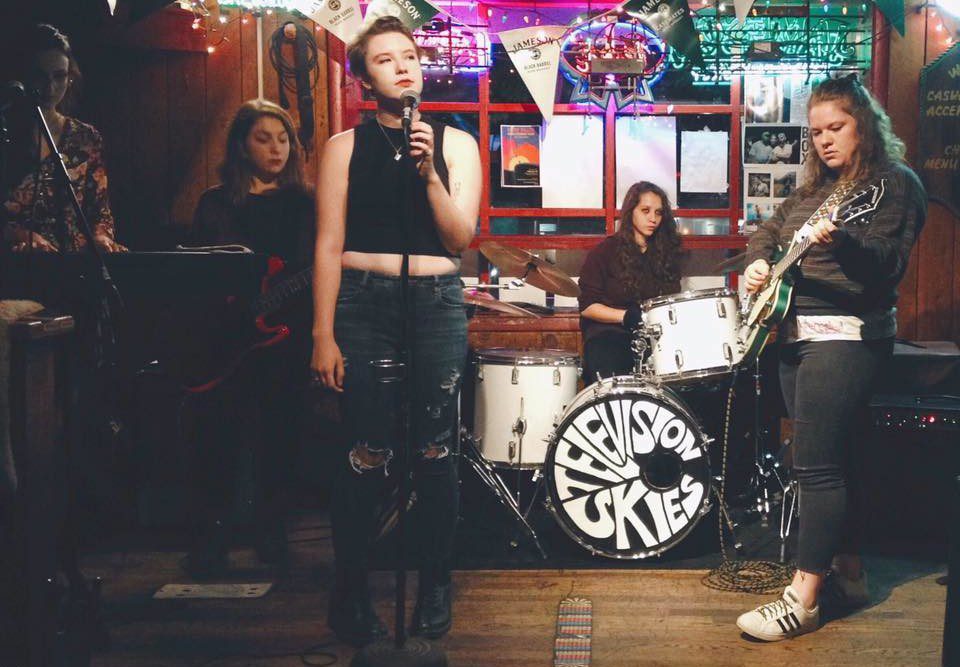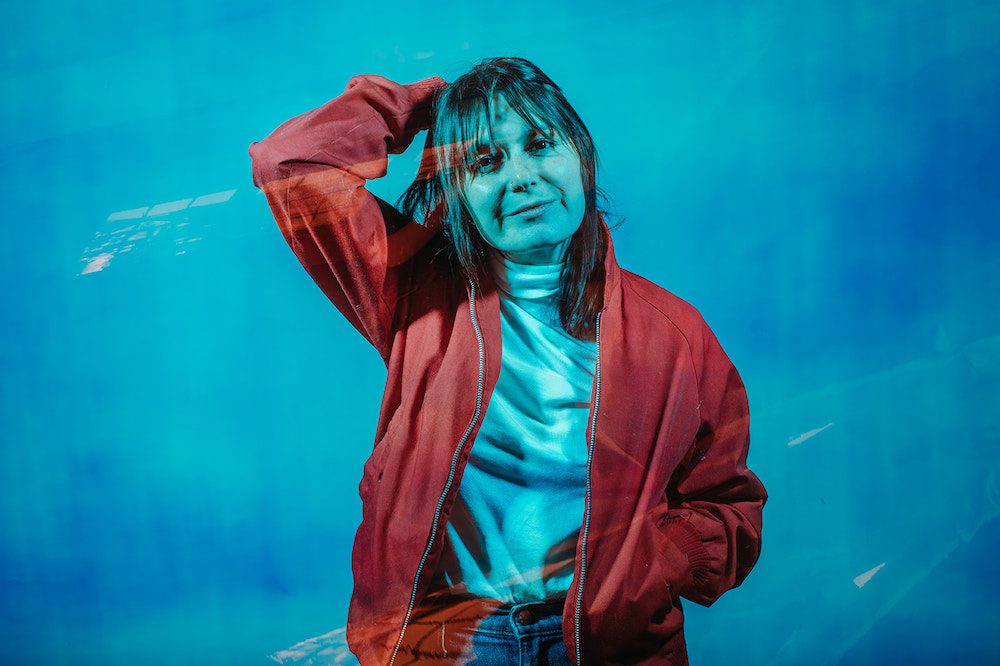AF 2018 IN REVIEW: How Mitski Used Performance to Make One of the Year’s Best Records


Since hitting her stride with 2014’s Bury Me at Makeout Creek and its critically acclaimed follow-up Puberty 2 (2016), Mitski’s audience has tended to project onto her as a symbol of their sadness, a microphone of sad-girl feelings. But Mitski does not want to be remembered this way, a position she asserted clearly this year with her much-lauded album Be The Cowboy. The songs here are largely fictional, more like a short story collection than they are a memoir. When Mitski discusses what “Be The Cowboy” means, as a phrase, she talks about adopting the swagger of the American Western as her own. The cowboy is one of many characters that Mitski embodies in the live performances of her breakout record, and she uses performance itself to elevate their meanings at every turn.
The Be The Cowboy tour is the first tour where Mitski isn’t playing an instrument consistently during the show. Instead, the show involves a dance piece, where Mitski sings and performs choreography by Monica Mirabile. It is a choreography conscious of its own performance: both natural and premeditated. It begins with something as simple as the pantomime of holding a cigarette and taking a drag as she’s singing “I Don’t Smoke,” from Bury Me At Makeout Creek, but by the time she sings “If you need to be mean, be mean to me / I can take it and put it inside of me,” she’s throwing something invisible across the stage, perhaps the lyrics’ “trinkets in your room.” Over the course of the show, the dance evolves: a seduction for “Me and My Husband,” a baby bird desperate to fly at the top of “I Will.” On “Drunk Walk Home,” Mitski The Performer interrupts the choreography’s drunken hands to curtsy: “I wore this dress for you.”
To the audience, the Performer’s function is to entertain. The Performer is someone the audience takes for granted; it is demanding, exhausting, to be the Performer. At the December 1st Brooklyn Steel show, the set began with “Remember My Name.” For the duration of the song, she is completely still. In its lyrics, Mitski confesses: “I gave too much of my heart tonight,” and asks her audience (real or imagined) to provide some love she can “save till tomorrow’s show.” It is a plea for the audience to remember there is a person behind the songs.
Performance on Be The Cowboy is the show you put on for others – whether it’s literal nightly performances as a touring musician, the catharsis in embodying someone else, or even a faked smile flashed for someone whose presence you can’t stand. In an interview with Paper Mag, Mitski talks about writing songs from the perspective of fictional people, rather than strict autobiographical experiences: “I find using a character or using a narrative that didn’t happen to you is better equipped in telling your story and expressing your feelings than what actually happened in your life.” Be The Cowboy is full of fictional characters, each played by Mitski with the confidence of the aforementioned cowboy. As she plays the characters, she explores the role of performance in their lives, and her own.

“Me and My Husband” begins with a heavy sigh. “Me and my husband, we are doing better,” the speaker insists, but the tense chord movement states otherwise. The idea of “sticking together” is not romanticized–it’s just an inevitability. She goes on to call herself “The idiot with the painted face / in the corner, taking up space.” The word “painted” evokes not just the character’s makeup, but a strained, vague smile worn like a mask. Though the song is short, each verse adds instruments–a keyboard, brass, heavier bass, building tension. What she’s saying is one thing, but what she means is in the progression; on the last repetition of “So I bet all I have on that furrowed brow,” the brass climbs chromatically.
Mitski sings again about being an object on “Washing Machine Heart.” It’s never “object” in the way “objectified” hints at sexualization. It’s something sadder and more everyday–being something of function to another person, and losing yourself in that process. Rhythmic synths bang like the aforementioned appliance, strings sound otherworldly. Here, she’s a receptacle for dirty shoes, or maybe the other half’s emotional crutch. Again the movement of the vocals and strings betray a tension that is only hinted at in the lyrics (“I know who you pretend I am”).
For Mitski, that kind of awareness (and any pretense that it doesn’t exist) creates a rift, one she spends the duration of Be The Cowboy exploring, her last frontier on the way to becoming whole and loved. Loneliness sometimes feels like the record’s most obvious motif – on “Lonesome Love” Mitski spends “an hour on my makeup to prove something,” while “Nobody” even opens with the line “My god, I’m so lonely.” Its rhythms are easy to dance to, though – at her shows, each audience member enjoys it as though trapped in their own personal disco, a club where people go to exorcise their loneliness by being out somewhere, but only dance alone.
Listeners take songs into their heart and project their own feelings, interpretations, personality on them. But the narrative that runs counter to this is one of someone learning to love themselves, as on explosive single “Geyser.” It grows from small synth sounds to something grand, profound, Mitski telling herself “I will be the one you need / I just can’t be without you.” The video, also choreographed by Monica Mirabile, sees Mitski chasing after her own outstretched hand on a darkened beach. She stumbles and crawls, ending the video digging through the sand.
When you’ve become an object, or a function, for another person (or the audience), the only person you can rely on is yourself. Though it can be liberating to ride into town on a horse and leave no trace, it can also be exhausting to act like someone you’re not. Beneath the sand in “Geyser,” beneath the facade of the cowboy, the wife, the elderly couple, is Mitski, telling stories that ring true, no matter the character who tells them.




